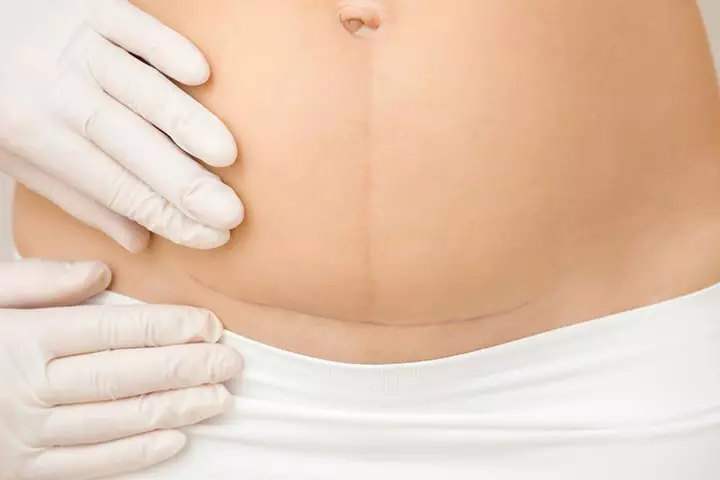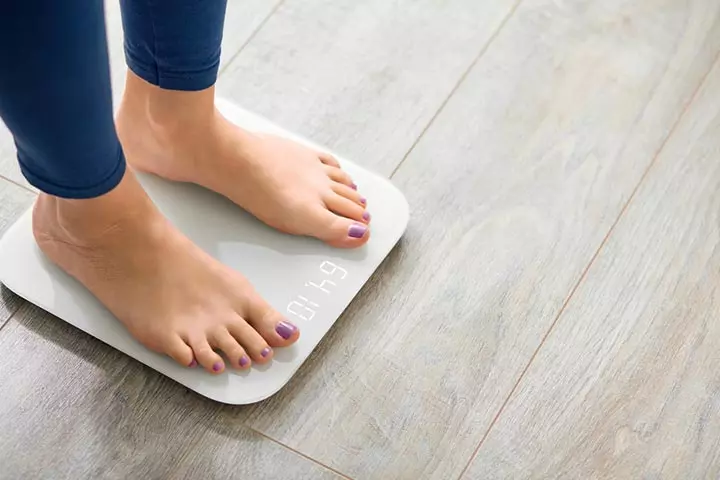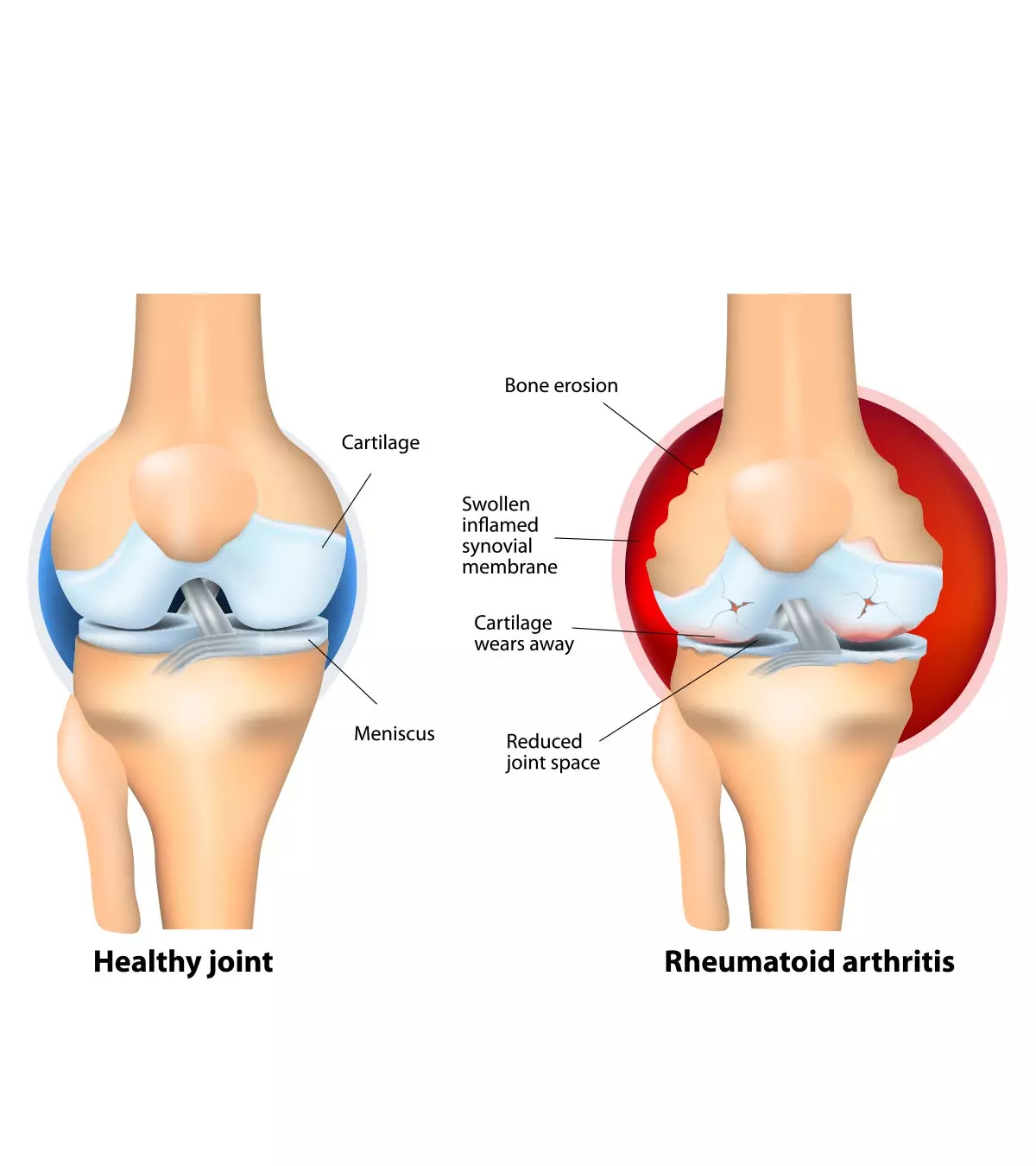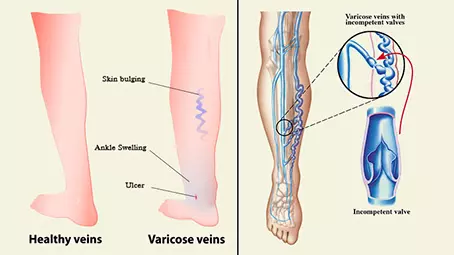
Image: Shutterstock
Once your baby arrives, you may feel overwhelmed with the new changes. But it is still important to care for your body, and that is where postpartum checkup becomes essential. The 6-week postpartum checkup is one of the essential checkups after the baby’s birth and is especially important if you had a C-section, normal delivery or certain issues during delivery. Postpartum visits to your doctor also help you know the progress of your recovery and healing.
Read on to learn more about the details and important points before planning your sixth-week postpartum checkup.
Key Pointers
- Women who have had a c-section, regular delivery, or difficult delivery should undergo monitoring 4 to 6 weeks after giving birth.
- The postpartum checkup includes a physical examination, blood tests, pelvic examination, and administration of vaccines if required.
- The doctor will examine the healing state of the incision site and check for anemia, thyroid problems, diabetes, and other illnesses.
- The doctor may also inquire about breastfeeding, mood swings, and emotional changes, and discuss birth control options and future pregnancies.
Why Do You Need a Sixth-Week Postpartum Checkup?
Women are advised to get checked at four to six weeks after childbirth. This is particularly important after cesarean, normal or complicated delivery to evaluate the psychological health, physical wellness, and recovery status of the new mother (1). This is also when your doctor may assess your baby to make sure they are doing fine. Other important aspects to discuss with your doctor are breastfeeding, contraception, and pre-planning for the next pregnancy.
Women need to be constantly monitored, and postpartum care should be a continuing process tailored to the woman’s needs. Furthermore, if you had complications or chronic health conditions in pregnancy or while giving birth, your doctor might want to see you within two to three weeks of delivery (2).
How To Prepare For Your Postpartum Checkups?
Discuss your postpartum care plan with your doctor and the postpartum care team (including friends and family) before delivery, which will help you prepare better. Note the following important points before your six-week checkup (3) (4).
- Maintain prompt communication with your obstetric care providers to ensure you are assessed on time.
- Your care team must also be aware of your ongoing health conditions to plan comprehensive postpartum visits.
- Have a booked appointment for consulting your doctor at your planned postpartum visit time.
- You may consider taking a separate appointment with your doctor to assess your baby thoroughly.
- Make sure you carry all the necessary documents, such as the discharge summary and your and your baby’s medical records.
- List down all the questions to ask your healthcare provider on the visit. A few important questions include getting back to exercise routine, breastfeeding, contraceptive methods, dealing with postpartum pains, nutrition, medicines and other health issues.
What Happens At The Sixth-Week Postpartum Checkup?
The postpartum assessments during a six-week visit may not be similar in every case and depend on the woman’s health status, time allotted, and the doctor’s recommendations. However, some common areas that are expected to be covered during the checkup include the following (3) (4) (5):
- History and physical exam: The postpartum checkup might begin with your doctor asking you about your labor and any possible complications you might have had in pregnancy or during delivery. Your provider may perform a vitals check if you had problems during pregnancy or immediately after the birth.
- Incision care and physical recovery: Your doctor may offer to examine your incisional region to check the healing process if you had stitches while delivering. Additionally, your doctor may ask you a few questions regarding bleeding after delivery, urinary discomforts, bowel movements, and back pain.

- Blood and other tests: Your doctor may recommend you to undergo certain blood tests to rule out anemia, thyroid disorders, and diabetes. This is essential if the mother had any of these conditions during pregnancy. Additional tests such as pap tests and complete blood count may be advised based on your health status.
- Feeding your baby: The doctor will inquire about breastfeeding your baby. You may take the support of the lactation team if you have any trouble establishing breastfeeding or any associated pain.

- Pelvic examination: The doctor may perform an internal pelvic exam to check for uterus size, signs of infection, vaginal discharge, or abdominal pain. These tests are suggested based on your health status and whether you have symptoms of any problem.
Sahara, a mother, shares her experience of going for a postpartum visit after six weeks in her blog. She says, “I had a bilateral sulcus tear, which means I have two long, deep tears on both sides. It is worse than a 3rd or 4th-degree tear, and almost cannot be categorized. It has been extremely painful, and I have had such a hard time sitting down or moving around in general because of it. Well, even after 6 weeks it is still painful, and I found out why: I have an infection that has caused a large cyst, a little larger than a marble. It is called a Bartholin cyst. I am going to be on antibiotics beginning tomorrow, and I also may need surgery to remove the cyst (i).”
- Mental health assessment: Your primary care provider may ask how you are coping with motherhood, mood swings, and emotional changes after delivery. This might help them identify any risks of mental health disorders such as anxiety, stress, and postpartum depression.
Sahara adds, “I also have been struggling with PPD, on a small scale. I have been having very negative feelings and emotions, especially at night when I am trying to get the baby to sleep. I feel very lonely and down. My midwife prescribed Zoloft, the minimum dosage.”
- Sex and birth control methods: This visit is also a good time to discuss resuming sex and other physical activities. Your doctor may inquire about future pregnancies and birth control options.

- Immunizations: You must make sure your vaccinations are up to date. Your doctor might review your vaccination history and suggest getting a Tdap or flu shot if needed.
- Management of other health conditions: If you have had any medical condition during or after pregnancy, such as diabetes or sleep disorders, your doctor may recommend management options to reduce the long-term effects.
 Things to know
Things to knowWhat Are The Other Things To Discuss With Your Doctor?
During a sixth-week postpartum check, report to your doctor if you are concerned about any of the following issues (6) (7).
- Excessive bleeding or vaginal discomfort: Inform your doctor if you have vaginal swelling, foul-smelling discharge, or constant bleeding that lasts for two weeks or longer.
- Feeding difficulties: You may take the support of a certified lactation consultant who can help you with breastfeeding difficulties and establish a healthy breastfeeding relationship with your baby.
- Pain in the abdomen: Tell your doctor if you have any pain in your pelvic or abdomen region, especially if you have had a cesarean procedure.
- Urinary incontinence: Any pain, discomfort during urination, or trouble holding urine must be reported to the doctor as it may indicate a possible urinary tract infection.
- Emotional disturbances: If you feel sad, anxious, sleepless, or have thoughts of hurting yourself or your baby, you must seek immediate medical care as these signs may be of a mental health disorder, like postnatal depression.

- Excessive fatigue, dizziness, or headaches: These symptoms might be common after delivery due to hormonal changes. However, long-lasting tiredness and headaches must be evaluated to rule out other medical conditions.
- Pre-existing health conditions: The sixth-week checkup is ideal to discuss your pregnancy and postpartum health problems with your doctor to prevent further complications. If you had blood pressure disorders, gestational diabetes, or preterm labor, you might be at increased risk of cardiovascular disorders (8).
- Resuming physical activities: Your sixth-week postpartum checkup is the right time to discuss with your healthcare provider the types of normal activities and the suitable postnatal exercises after delivery.
- Nutrition and weight management: A right diet and appropriate BMI are essential for a woman after delivery. Hence, it is important to discuss the diet and multivitamins to be taken postpartum to help maintain good health and facilitate breastfeeding.

 Point to consider
Point to considerFrequently Asked Questions
1. Is the sixth-week postpartum checkup painful?
Though the postpartum checkup may cause some discomfort, it usually isn’t painful. However, some women might have pain after delivery that may persist until six weeks postpartum (4).
2. Can I bring my baby for a sixth-week postpartum checkup?
You may bring your baby during your checkup, but it is better to book a separate appointment to make sure your baby is well-examined by the doctor (9).
3. What happens if I miss my sixth-week postpartum checkup?
If you miss your sixth-week check, make sure to book an appointment with your doctor at the earliest or plan for an in-house nurse visit or web-based consultation (10).
4. Am I fully healed six weeks postpartum?
Most women feel recovered after 6-8 weeks of childbirth. However, some women may take longer to recover, requiring a follow-up (11).
5. How much weight would I lose six weeks postpartum?
Most women lose half their pregnancy weight by six weeks after childbirth (12). The uterus will weigh two ounces; it was around 2.5 pounds immediately after birth (13).
6. What should my belly look like six weeks postpartum?
After the first six weeks of childbirth, your pregnancy belly would shrink back to its regular size to a pre-pregnancy state. You may have afterbirth pains because of continuous uterine shrinkage (13).
7. What are the two common changes in the first six weeks postpartum?
During the first six weeks postpartum, you will see changes in your breasts due to milk production. You will also notice changes in body size as it tries to readjust itself to the pre-pregnancy state (13).
The six-week postpartum check provides an opportunity for you to talk to your doctor about anything that is of concern to you. You can make a list of questions you want to discuss with your doctor so that nothing slips out of your mind and there is a timely resolution of any issue. Altogether, having a thorough postnatal check and getting all your queries answered will help facilitate healthy and safe motherhood.
Infographic: Concerns That Shouldn’t Wait Until Postpartum Checkup
Childbirth leads to some discomfort in every mother. Usually, such discomforts are noted and treated during the sixth-week postpartum health checkup. However, a few mothers experience distress that might indicate an underlying problem. These signs should not be ignored until the postpartum health checkup and must be brought to a doctor’s immediate attention.
Here is an infographic listing the concerning signs noticed after childbirth. Illustration: Momjunction Design Team
Illustration: What Happens At 6-Weeks Postpartum Checkup & Its Importance

Image: Dall·E/MomJunction Design Team
It’s been 6 weeks since you had your baby – time to check in with your doctor! Learn the 6 questions to ask at your 6 week postpartum check up.
Personal Experience: Source
MomJunction articles include first-hand experiences to provide you with better insights through real-life narratives. Here are the sources of personal accounts referenced in this article.
i. 6 Week Postpartum Checkup.https://lovelylittlebump.blogspot.com/#
References
- Michael C. Lu, et al., (2015); The postpartum visit: Risk factors for nonuse and association with breast-feeding.
https://www.ncbi.nlm.nih.gov/pmc/articles/PMC4353609/ - ACOG Redesigns Postpartum Care.
https://www.acog.org/news/news-releases/2018/04/acog-redesigns-postpartum-care - Optimizing Postpartum Care.
https://www.acog.org/clinical/clinical-guidance/committee-opinion/articles/2018/05/optimizing-postpartum-care - The postpartum visit. Why wait 6 weeks?
https://www.racgp.org.au/getattachment/66ebbe98-756e-42fd-b7d1-656aff649d0f/attachment.aspx - Your 6-week postnatal check.
https://www.nhs.uk/conditions/baby/support-and-services/your-6-week-postnatal-check/ - The ‘fourth trimester’: Why women need health care after delivery?
https://utswmed.org/medblog/fourth-trimester-primary-care/ - A Guide for Your 6-week Postpartum Checkup.
https://www.mass.gov/doc/a-guide-for-your-6-week-postpartum-checkup/download - Your postpartum checkups.
https://www.marchofdimes.org/find-support/topics/postpartum/your-postpartum-checkups - What happens at your 6-week checkup?
https://www.nct.org.uk/information/baby-toddler/baby-and-toddler-health/what-happens-your-6-week-check - Valery A. Danilack, et al.,(2020); Characteristics of women without a postpartum checkup among PRAMS participants, 2009–2011.
https://www.ncbi.nlm.nih.gov/pmc/articles/PMC6555651/ - Recovering from Delivery (Postpartum Recovery).
https://familydoctor.org/recovering-from-delivery/ - Losing weight after pregnancy.
https://medlineplus.gov/ency/patientinstructions/000586.htm - Your Body After Baby: The First 6 Weeks.
https://www.marchofdimes.org/find-support/topics/postpartum/your-body-after-baby-first-6-weeks - Your 6-week postnatal check.
https://www.nhs.uk/conditions/baby/support-and-services/your-6-week-postnatal-check/#:~:text=You%20should%20have%20your%20postnatal,changes%20made%20in%20April%202020
Community Experiences
Join the conversation and become a part of our nurturing community! Share your stories, experiences, and insights to connect with fellow parents.
Read full bio of Dr. Anita Gupta
Read full bio of Vidya Tadapatri
Read full bio of Rebecca Malachi
Read full bio of Aneesha Amonz
















